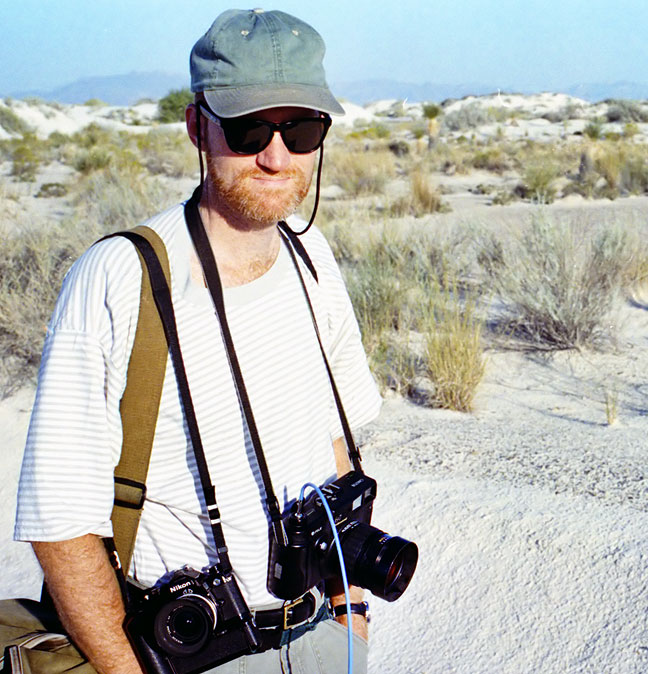
A friend recently posted that he wants to return to black-and-white film, and as a result, I started feeling an odd itch: medium format black-and-white. The itch got intense enough that I actually looked up some old cameras on eBay.
For about ten years, I had an interesting camera, the Fuji GW670III Professional 6×7. It was an odd piece of hardware, in that…
- It was a rangefinder. My first camera, a Yashica, was a rangerfinder camera, so I knew how to use them, but almost to a man, when I handed the GW to someone else, they could not figure out how to focus it.
- It required an external light meter, since it was an all-mechanical camera. I was pretty good with my basic Gossen Luna-Pro meter, but it meant having an extra accessory around my neck and an extra step when shooting. On the other hand, I was fairly good at guessing exposures.
- It was married to 90mm. This optically excellent, non-interchangable lens was equivalent to about 45mm on a film SLR, or about 33mm on most digital sensors, qualifying it as a “normal” lens.
- It was cheaply made in some important areas. Fuji used plastic on some key parts, including the film wind lever, which I had to have replaced. The body was plastic too, and didn’t hold up well to average use.
On the other hand, there were great things about this camera…
- The 90mm lens was super sharp. Despite not having the contrast of a Nikkor, the detail revealed by this glass was excellent.
- It handled like a camera. There was none of the weird winding-up-a-toy cranking like on a Hasselblad or looking down into the viewfinder like on the Yashica twin-lens I used occasionally at the Shawnee News-Star. The controls were, for the most part, in the right place.
- It was lightweight. The upside to its plastic construction was that it could stay on my shoulder all day on hikes.
Much of the time, I used this Fuji for landscape work in the desert, where most of the time it wore a deep orange filter. My go-to film was Verichrome Pan Film, which Kodak quit making in about 2002. Rated at ISO 125, this film featured outstanding tonal qualities and near-perfect response to filtration, as well as great exposure and processing latitude. The 6×7 cm format, which is roughly 2.4 x 2.8 inches, is much larger than 35mm film, and capable of revealing an amazing amount of detail.
I ended up selling the Fuji in 2004 to a college student, where I hope it ended up teaching her the basics of photography and making great images.

Yes. Do it. Get one!
As temping as that is, I don’t want to re-purchase the infrastructure required to start creating medium format film images. Beside, I sold the camera in the midst of the film era because I seldom used it.
I’ll take one anytime.
Awesome desert shots, with camera, and by the camera.